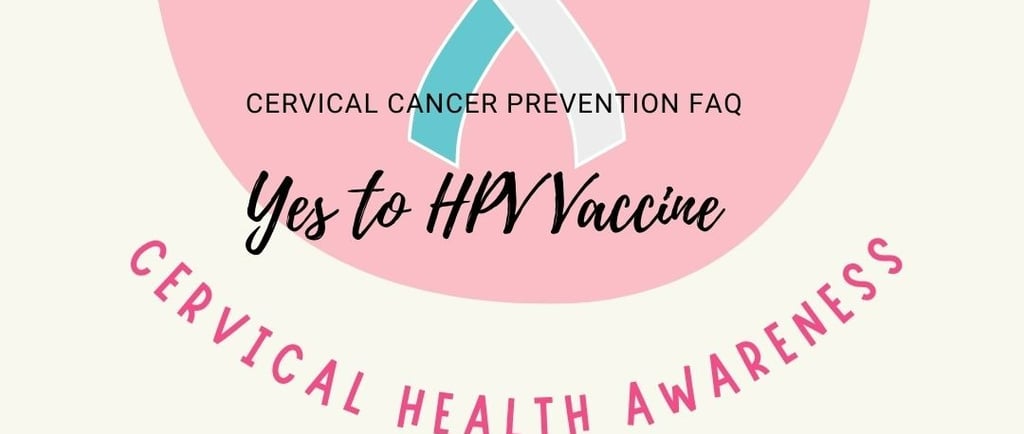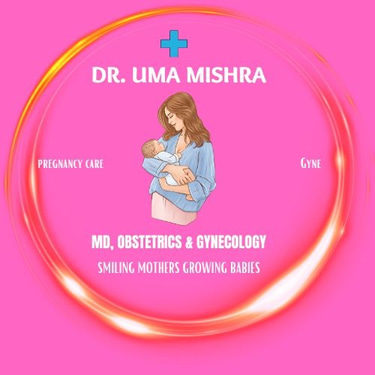Are you protected against Cervical Cancer? Meet Gynecologist Today!
HPV Vaccine: Who Needs it, How it Works Description: Learn everything you need to know about the HPV vaccine, including who should get it and how it works to prevent cervical cancer and other cancers caused by human papillomavirus. This comprehensive guide covers the recommended age groups for vaccination, the number of doses needed, and potential side effects. Discover how the vaccine can also protect against genital warts and other cancers in both men and women. Stay informed about the latest recommendations from the Centers for Disease Control and Prevention (CDC) and the U.S. Food and Drug Administration (FDA) to make informed decisions about your health. Don't wait to get the facts about the HPV vaccine – read our guide today! Dr Uma Mishra, Gynecologist in Noida explains the details.
Dr Uma Mishra
5/7/20232 min read


Learn About the HPV Vaccine: Who Needs It and How it Works
Human papillomavirus (HPV) is a sexually transmitted infection that is associated with most cases of cervical cancer. The HPV vaccine is an effective way to reduce the impact of cervical cancer and other cancers caused by HPV. Here's what you need to know about the HPV vaccine:
What does the HPV vaccine do?
The HPV vaccine, Gardasil 9, can prevent most cases of cervical cancer, vaginal and vulvar cancer, genital warts, anal cancers, and mouth, throat, head, and neck cancers in women and men. This vaccine is approved by the U.S. Food and Drug Administration for both girls and boys.
Who is the HPV vaccine for and when should it be given?
The Centers for Disease Control and Prevention (CDC) recommends that girls and boys between ages 11 and 12 receive two doses of the HPV vaccine at least six months apart. The vaccine can be given as early as age 9. The CDC recommends catch-up HPV vaccinations for all people through age 26 who aren't adequately vaccinated. The vaccine may be given up to age 45 for males and females, but it should be discussed with a doctor first.
Who should not get the HPV vaccine?
Pregnant women or people who are moderately or severely ill should not get the vaccine. If you have any severe allergies, including an allergy to yeast or latex, or have had a life-threatening allergic reaction to any component of the vaccine or to a previous dose of the vaccine, you shouldn't get the vaccine.
Does the HPV vaccine carry any health risks or side effects?
The HPV vaccine is safe and effective. Side effects are usually mild and include soreness, swelling, or redness at the injection site, dizziness, fainting, headaches, nausea, vomiting, fatigue, or weakness.
Is the HPV vaccine required for school enrollment?
The HPV vaccine is part of the routine childhood vaccines schedule, but whether it becomes a school enrollment requirement is decided on a state-by-state basis.
Do women who've received the HPV vaccine still need to have Pap tests?
Yes. The HPV vaccine is not intended to replace Pap tests. Routine screening for cervical cancer through regular Pap tests beginning at age 21 remains an essential part of preventive health care.
What can you do to protect yourself from cervical cancer if you're not in the recommended vaccine age group?
Use a condom every time you have intercourse to protect yourself from HPV. Don't smoke, as smoking raises the risk of cervical cancer. To detect cervical cancer in the earliest stages, see your doctor for regular Pap tests beginning at age 21. Seek prompt medical attention if you notice any signs or symptoms of cervical cancer, such as vaginal bleeding after sex, between periods, or after menopause, pelvic pain, or pain during intercourse.
Dr Uma Mishra, Gynecologist in Noida, can help you in getting right type of vaccination for prevention of cervical cancer and other types of cancers. Consult doctor online or offline today.
